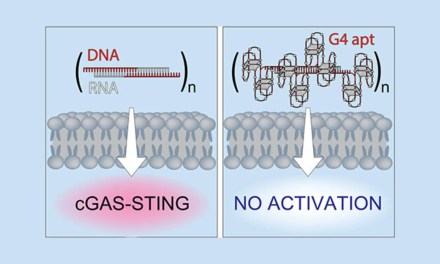Hair graying is a common and visible part of aging that many people hope to delay or avoid. While the beauty industry offers a variety of cosmetic products to cover gray hair, there are still very few options backed by science that can actually slow down the process itself. A new study by researchers in Japan offers fresh hope by showing that a natural plant compound called luteolin might help prevent hair from turning gray.
A team is led by Professor Masashi Kato from Nagoya University and Chubu University studied how luteolin affects hair color in specially bred mice that tend to go gray faster than normal. The findings were published in the journal Antioxidants.
Professor Kato and colleagues gave the mice luteolin in two ways: by applying it directly to their skin and by feeding it to them. They also tested two other natural compounds, hesperetin and diosmetin, but these did not show the same benefits. Mice treated with luteolin developed fewer gray hairs, especially when it was applied to their skin. The oral treatment helped too, though the effects were not as strong.
The study suggests that luteolin works by protecting special types of cells in the hair that are responsible for maintaining color. These cells—called keratinocyte and melanocyte stem cells, which are involved in building skin and producing pigment—often become damaged or stop working properly as we age. Luteolin helped keep these cells healthy and functioning. “Luteolin suppressed the increase in p16ink4a-positive cells in bulges, which refers to aging keratinocyte stem cells that gather in the root area of hair follicles,” Professor Kato explained. This means that luteolin helped prevent these cells from becoming old and worn out.
The process seems to work by lowering the stress on cells caused by harmful molecules known as oxidative stress, which is a kind of damage that builds up over time. It also helps by keeping important communication lines open between different types of cells in the hair. As we get older, this communication—known as signaling—often breaks down, leading to loss of hair pigment. “Luteolin improved the signaling dysfunction between endothelins in KSCs and their receptor in MSCs,” Professor Kato added, referring to how luteolin helps restore communication between pigment-supporting and pigment-producing cells, ultimately slowing the graying process.
This research adds to what we know about how natural compounds can help keep aging cells in better shape. Although the study focused on hair, the results might also apply to other parts of the body where aging plays a role. Interestingly, the researchers also showed that luteolin could block gray hair caused by a chemical that triggers stress in cells, giving further support to the idea that luteolin may help protect against general signs of aging.
While more research is needed to confirm these results in people, the findings are promising. Luteolin is already found in some supplements and skincare products, which could make it easier to develop new treatments in the future. Professor Kato concluded, “These results are encouraging for the practical application of luteolin as a medicine with an anti-graying effect on hair in humans”.
Journal Reference
Iida M., Kagawa T., Yajima I., Harusato A., Tazaki A., Nishadhi D.A.S.M., Taguchi N., Kato M. “Anti-Graying Effects of External and Internal Treatments with Luteolin on Hair in Model Mice.” Antioxidants, 2024; 13(12):1549. DOI: https://doi.org/10.3390/antiox13121549
About the Author

Professor Masashi Kato is a distinguished scientist in the field of environmental and occupational health, with a strong focus on skin biology, stem cell behavior, and the molecular mechanisms of aging. Based at Nagoya University and affiliated with Chubu University, Professor Kato has led numerous studies exploring the interplay between environmental factors and biological aging, particularly within the context of hair pigmentation and stem cell maintenance. He is known for pioneering research using genetically modified mouse models to understand how cellular stress and aging-related changes affect skin and hair. His work integrates molecular biology, toxicology, and regenerative science to uncover potential therapeutic applications for aging-related conditions. Beyond research, he is actively involved in academic leadership and mentoring, contributing to international collaborations and innovation initiatives. Professor Kato’s studies have significant implications for both medical science and cosmetic health, offering new avenues for tackling age-associated changes through natural compounds.














































